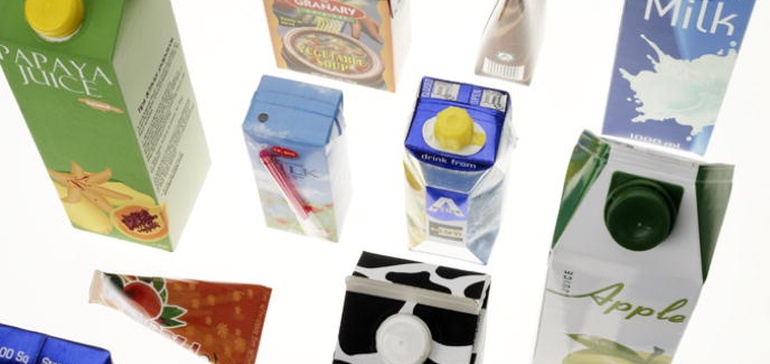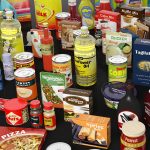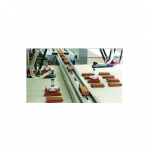
Tetra Pak overhauling Texas plant to address changes in packaging
Dive Brief:
- Tetra Pak is expanding its plant in Denton, Texas, and adding a new laminator to meet increasing demand for aseptic screw-top sports nutrition, protein drink and other containers. The new equipment should be at full production by the end of next year, according to the Dairy Reporter.
- Workers at the Denton plant print paperboard and then convert layers of paperboard, aluminum and polyethylene into rolls of aseptic packaging material. The new laminator will apply polyethylene layers and laminate printed material and aluminum together as part of this process.
- The European-based packaging company said the $35.6-million investment will enable it to move some production from Mexico to Denton — its North American headquarters — and offer consumers reduced lead times, among other benefits.
Dive Insight:
Aseptic food and beverage packaging is popular for a lot of different reasons: It’s convenient, lightweight, processing time is shorter and the contents require no preservatives. In addition, it offers shelf stability and food safety benefits. According to a Research and Markets report, the category is expected to see growth from $39.62 billion this year to $66.45 billion by 2022 — a CAGR of 10.89%.
Tetra Pak, a world leader in this category, has pioneered the development of ergonomically designed screw-caps for its aseptic beverage containers so consumers can control the flow of liquid and easily reseal the cap. Its latest product, the DreamCap, is even available in a renewable bio-based version made from plastic sourced from sugarcane.
Busy millennials are one demographic likely to reach for aseptic containers when they’re buying protein drinks and sports nutrition beverages. They also are likely to appreciate Tetra Pak’s goal of only using sustainably managed renewable materials in its packaging.
Tetra Pak has been investing in screw-cap and packaging material manufacturing plants in Thailand and Vietnam, but since so much of today’s demand for aseptic packaging is here and in Canada, it’s a good marketing strategy for the company to invest in its U.S. production facilities as well. The prospect of moving jobs from Mexico to the U.S. can’t hurt its image either. When the upgrades are completed, the company noted the Denton plant will be one of the most advanced it operates, which is another added bonus.
Increasingly, packaging has come to reflect the changes taking place across the broader food space. Ball announced recently it is closing a food can production facility in Springdale, Arkansas because of dwindling demand for canned foods.
Read more: Tetra Pak overhauling Texas plant to address changes in packaging





